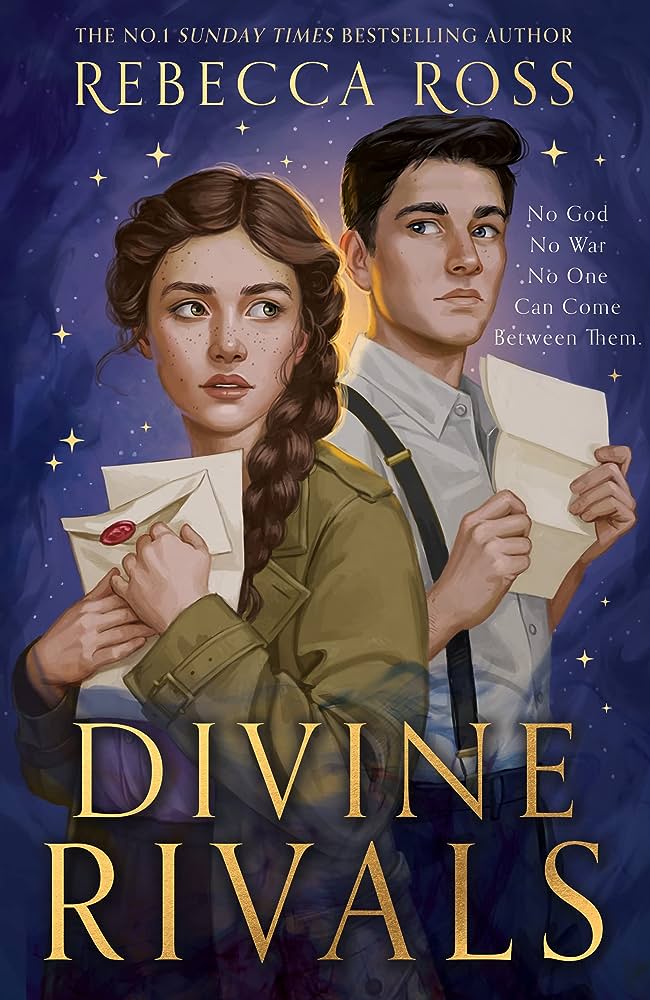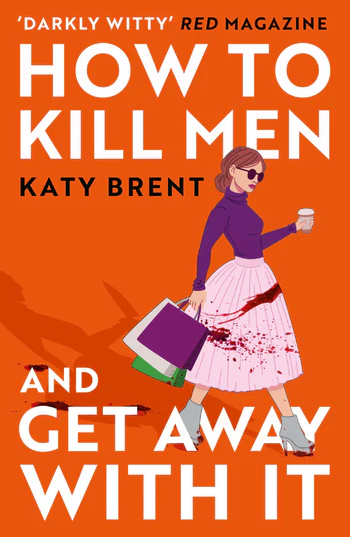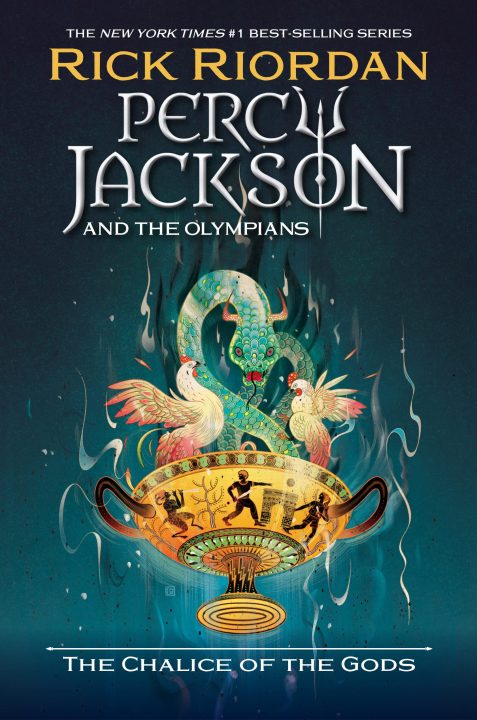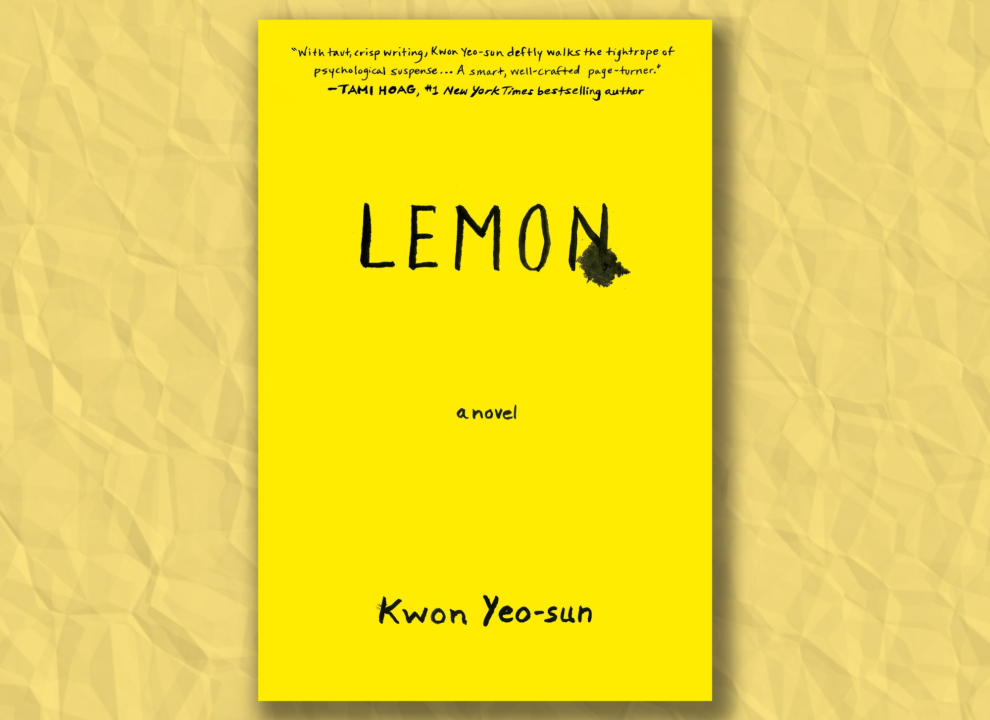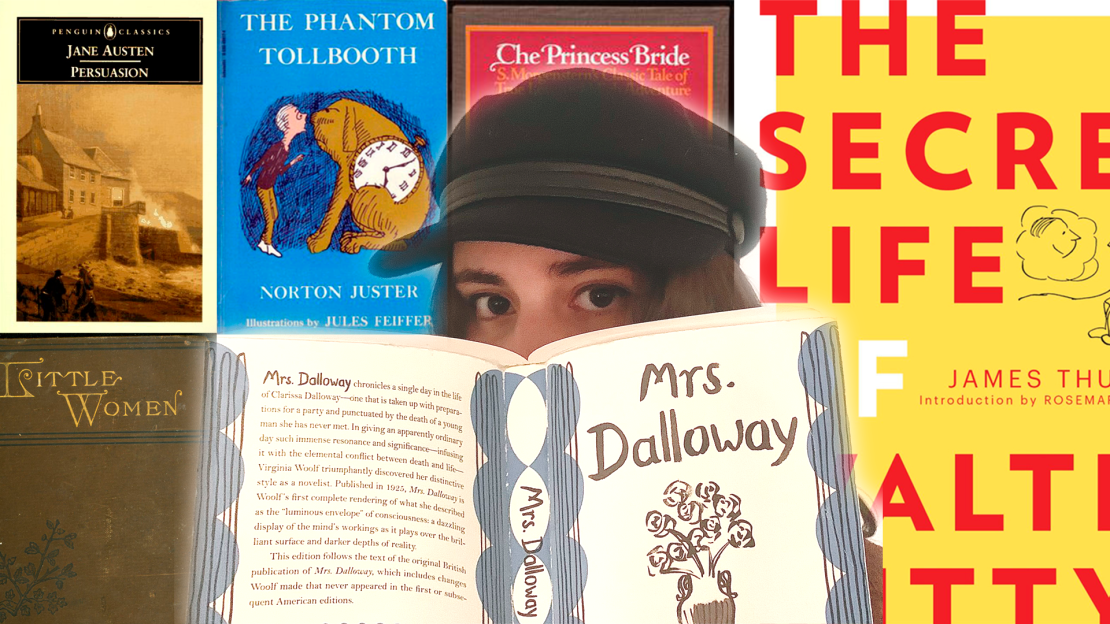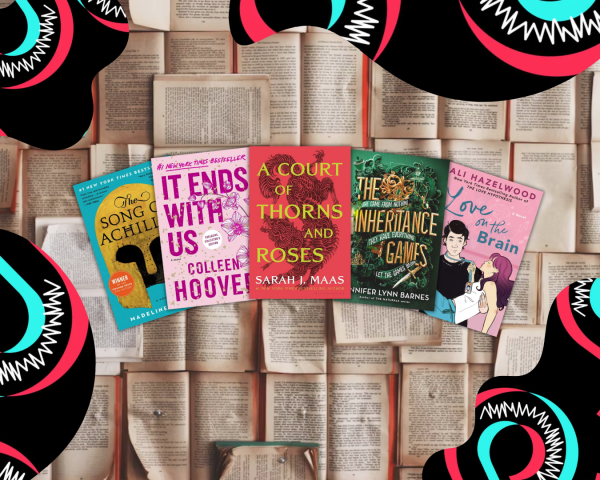
The TikTok hashtag #BookTok, raking in 224.5 billion views and counting, has enraptured the app’s book-loving community. BookTok has mirrored other communities on platforms such as Instagram’s #bookstagram and Youtube’s #booktube. However, these older platforms have not appealed to the swift, proliferating popularization of books to the degree that TikTok has.
BookTok is a community where quick recommendations are shared, amusing book challenges are created and astoundingly elaborate fandoms come together. The short yet entertaining nature of these videos combined with their accessibility has been a crucial contributor to putting books back in style.
Booksellers and publishers have kept up with this trend, latching onto this growing prevalence of books being shared on the internet. For example, Barnes & Noble stores have tables dedicated solely to “BookTok books,” along with an entire online section of BookTok books.
The presence of BookTok has dramatically increased book sales. According to Publishers Weekly, “Unit sales of print adult fiction books were up 8.5%” from 2021-22; in the first six months of 2023, these sales increased another 4.2% — with BookTok being the “biggest driver of those gains.”
According to research by the Publishers Association, readers are growing in quantity. As stated by The Guardian, “In a poll of more than 2,000 16- to 25-year-olds, almost 59% said that BookTok had helped them discover a passion for reading.”
The increases in the number of readers lead to a rise in global book sales. But at what cost? Are books being produced with the quality that readers deserve?
Authors are under immense pressure to pump out books in unfeasible amounts of time. The voracity for books doesn’t allow for necessary revisions and precise writing. For example, a trending BookTok book was “Fourth Wing” (2023) by Rebecca Yarros. Most readers would expect the next book in the series to take at least a year or more to write; however, this was not the case.
The second book in the “The Empyrean” series, “Iron Flame,” was published in November 2023 — a six-month turnaround. Unsurprisingly, reviews for this book were mixed. Some of the more frequent critiques included the strange pacing, as well as a lack of editing and character development. This is not a solitary occurrence, as many authors are feeling an exponential increase in the pressure to write fast. This stress certainly affects the quality of the books being presented to the public.
This burgeoning problem in the book industry is akin to the production of fast fashion clothing. This practice is highly controversial because clothing is made at an alarmingly fast rate that forfeits quality, perpetuates violations of workers’ rights and exacerbates environmental waste. Currently, the retail company Shein dominates the fast fashion market with extensive selections ranging from clothing to household goods and beauty products with items priced as low as $1. The process of mass producing fast fashion is now infiltrating the book industry, as publishers and authors are confronted with the dilemma of releasing poor-quality works or meeting the insatiable, ever-increasing demands of BookTok.
This demand for books on the TikTok platform consists of trope-filled literature such as “Grumpy Sunshine” and the desire for smut (sexual literature). Authors catering to their readers’ desires and the pressure to produce books in short amounts of time do not make for high-quality work. Rather, the banal books are often misaligning with their promotion, leading to problematic issues — especially if a book contains sensitive content, such as the romanticization of sexual abuse and domestic violence. As a result, publishers highlight these books to appease the BookTok community while ignoring diverse books that are not obtaining the attention they deserve.
Cliché tropes such as friends to lovers and enemies to lovers are inevitable. However, BookTok has strongly encouraged authors to emphasize and exaggerate them to the point that the entire story revolves around these derivative tropes. It creates an atmosphere of triteness in the genre of contemporary literature. Do authors have to submit trope-filled literature in order to be published? It seems like most of the popular authors do.
Additionally, the pervasion of smut in modern literature is startling. While the search for appropriate sexual literacy is important for today’s adult readers, the sexual nature of popular BookTok books promotes an alarming and dangerous perception of intimacy to readers. The prominent “romance” author Colleen Hoover writes dark adult fiction literature that is marketed as adult romance. In her book “It Ends with Us,” she vividly writes about intimate partner violence but conceals it with a “Hallmark-loving tone.” This inherently glamorizes domestic and sexual abuse to her audience, especially since the book is mismarketed as a romance.
On BookTok, the genre of dark romance has been trending at 7.5 billion views. Dark romance almost always includes explicit sexual content and triggering subjects such as murder, violence and abuse.
A popular BookTok book within the dark romance genre is “Haunting Adeline” by H.D. Carlton, which details a stalker’s intense infatuation with a woman he doesn’t know. He is a manipulative sociopath who commits violent atrocities such as rape and murder, but he eventually becomes the main love interest after he forcefully enters the woman’s house and sexually assaults her.
This perpetuation of nonconsensual sex and violent “love” on BookTok is unhealthy for younger audiences, as it can lead to the conflation of violence and love.
BookTok does not always result in negative ramifications. Rather, it provides readers with a community where they can make friends, acquire book recommendations that might change their perspectives and find more examples of diverse literature written by authors of color. However, the repercussions of BookTok must be discussed rather than ignored. Are these books being produced worthy of the public’s consideration? Should the public be supporting these types of harmful literature?











